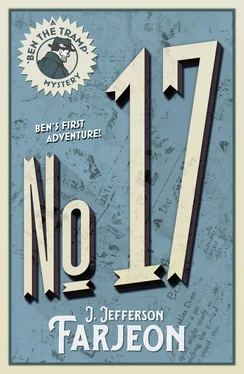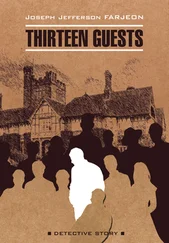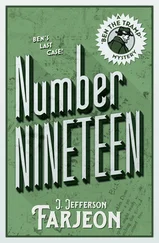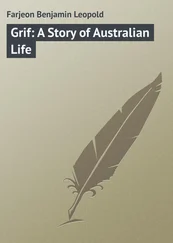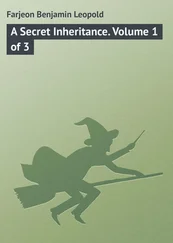‘’Ow much?’ demanded Ben, taking up the single selection.
‘One-and-two, or one-and-three, I think,’ replied the old lady. ‘Dear me, I must get some more.’
‘Let it go fer a shillin’, ma?’ asked Ben.
‘We’ll say one-and-two, then.’
‘But I ain’t got one-and-two. I got a shillin’.’
She looked at him, over her glasses. He was very shabby. And it was very foggy. And she was very old. Details don’t matter quite so much when you are old.
‘All right, then—a shilling,’ she said; and the bargain was struck.
He groped his way back to the empty house, noted with satisfaction that the door was as he had left it, and slipped in with his precious packet. This time, he bolted the front door behind him and, after depositing his parcel in the back reception-room, he descended to the basement to make certain that the back door was bolted also. This settled, he returned to the back reception-room, and prepared to make himself comfortable.
He tested the floor by sitting down in a corner of it. Not at all bad. Quite decent, in fact. So decent, that he had no immediate impulse to get up again. Of course, he’d get up soon. He’d find some wood and make a fire. Then, a little later, he would heat the pork and beans on the fire … that would be good … but not just yet … a little later …
He began to nod. His head drooped forward. Ben had walked a good many miles that day. A clock outside chimed six.
Ben did not hear it—he was fast asleep.
He awoke suddenly, with a start. The clock was striking again—midnight. But that had not awakened him. Someone was walking in the basement below.
‘G’arn—I’m dreamin’,’ thought Ben. ‘Orl them doors is bolted!’
He stayed quite still, listening, and hoping to be awakened from the dream. But the footsteps continued, and grew louder, and all at once Ben realised that this was no dream, but stark reality. The knowledge produced a frank sweat.
The moment when the dream theory fails is always a nasty one.
‘S’elp me, there’s a bloke dahn there,’ gasped Ben, and clambered clumsily to his feet.
Then he stood motionless, and listened again. Now he heard no sound. The footsteps had stopped. Was the producer of the footsteps also listening, standing somewhere below as motionless as he?
Ben crept to the door, and softly opened it. As he did so, a dull clank-clank in the distance grew nearer and louder. A goods train, obviously. It rattled under the house, shaking it, and under cover of the noise Ben left the room and stepped out into the passage.
‘P’r’aps it was the trine, orl the time,’ thought Ben, as the rattle and clank decreased.
But this hope was soon dissipated. Even before the sound of the train had dwindled away, the footsteps below recommenced—less heavily, this time more stealthily.
‘’Ere, I’ve ’ad enuff o’ this!’ reflected the seaman, and tiptoed quickly along the passage.
Should he dash out of the house? This would mean unbolting the front door—a noisy operation—and it would also mean the rest of the night in the fog. A speedier, and probably better, sanctuary was suggested by the staircase. Almost before he realised it, he was ascending the stairs, and he did not pause in his ascent until he had reached the top of the house.
He found himself now on a small landing with a skylight above him, and a door on his right. There was only one door, leading assumedly to an attic.
Before entering the door, he turned and peered down the stairs up which he had come. All was quiet. He waited, so it seemed to him, five minutes, but probably it was only one. Then he turned to the attic door again, and regarded it.
Risking the sound, he struck a match. A key was in the door, and this immediately suggested his plan. He stretched his hand forward, and turned the key. The door was now locked, with the initiative on his side, and he was free to negotiate.
‘Oi!’ he whispered, through the keyhole. ‘Hennybody there?’
No answer came. He repeated the inquiry, a little more loudly, but not too loudly, lest the thing below stairs should hear. Then, as again no answer came, and as he heard neither breathing nor snoring, he felt free to turn the key, and open the door.
Another match revealed the chamber, and proved that, although less pretentious from the architect’s point of view, it had certain advantages over the lower rooms he had already sampled. The first advantage was a half-used candle, sticking upright in a pool of its own grease on the mantelpiece across the floor. Ben made for the candle promptly, and by its comparatively brilliant glare noted the other advantages of the attic.
An old chair, battered but still serviceable, was near the fireplace. Three or four packing-cases, which could be used as tables or firewood, stood about. And the key in the door was another advantage, for it offered security.
But before Ben could finally approve of the room, two other doors had to be investigated.
One door, by the fireplace, led to an inner room somewhat similar to the outer room. Rendered courageous by his candle, he made a thorough examination of this inner chamber, discovering that it possessed no other entrance, and that it contained a fair-sized cupboard.
The other door of the outer room, at right angles to the passage door, and close to it, refused to open. It was locked—as the door down in the basement had been—and there was no key.
‘This is a better pitch,’ thought Ben. ‘I’ll stay ’ere till the mornin’, any’ow, and the feller dahnstairs can ’ave the bottom ’arf. Sort o’ maisonette.’
Some packing-cases stood under a rather high window. He climbed on to them, and peered out. Fog still as thick as ever. Climbing down again, he selected the most dilapidated case, and split it up.
‘Might as well ’ave a bit o’ cheer,’ he muttered. ‘And it’s time, I reckons, fer them pork an’ beans.’
Fortunately, there were some odd scraps of paper in the packing-case, and these served to start the fire. Throwing some wood on top, he soon had a good blaze, and the warmth welled into him, making life good once more, and dispelling some of his tremors. Thus many another has enjoyed the calm before the storm, smiling for a short period in the false assurance of a temporary security.
His good humour increased when he opened the packet which contained the tin of pork and beans. The old proprietress of the Emporium had added a chunk of bread and a slice of cheese. Best bob’s-worth he’d ever known. This was a bit of all right!
‘Me own mother wouldn’t ’ave done more fer me,’ thought Ben. ‘Wot it is ter ’ave a ’andsome fice!’
But, although he made light of it, the old woman’s kindliness warmed that bare, uncomfortable room almost as much as did the crackling blaze. In the midst of all this uncouthness and uncanniness, of fearful possibilities and tremulous thoughts, a peaceful, human smile lurked somewhere. It stood for the tiny gleam that no blackness can ever totally extinguish, though often enough we seem to lose it in our groping, and forget that it is there. Yet, however faintly it burns, it never flickers out, for it is independent of material substance.
He had some difficulty in opening the tin, and might have been reduced to stamping upon it but for a nail which he wrenched from one of the packing-cases. Putting the tin carefully on the fire, he watched its congealed contents soften and warm, munching bread and cheese to assuage his impatience. He had no spoon, so he stirred the pork and beans with his finger, to help them on their way, and also for the pleasure of sucking his finger afterwards. The operation was so successful that he stirred the pork and beans several times, until they got too hot for the process. Then, to ensure peace with his meal, he tiptoed out on to the landing once more, and listened.
Читать дальше
